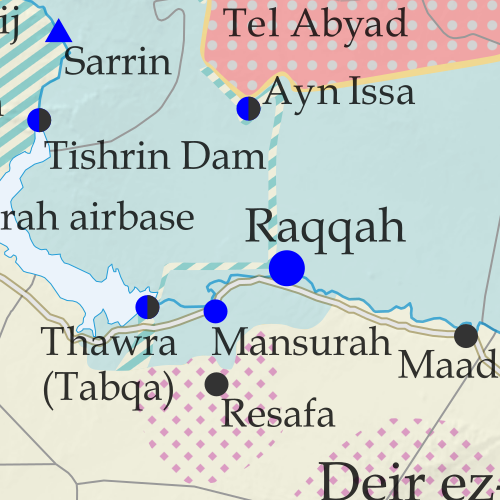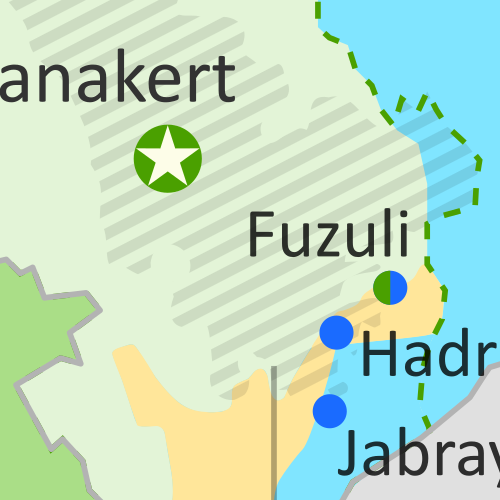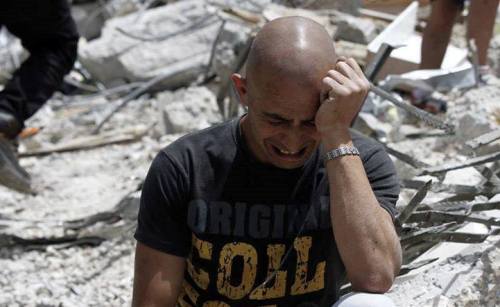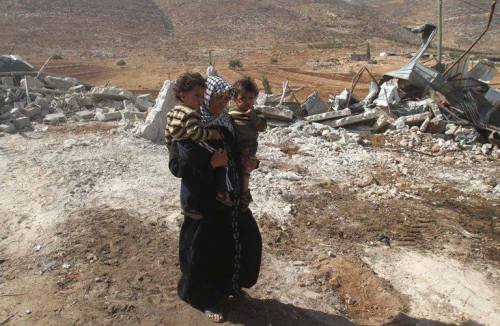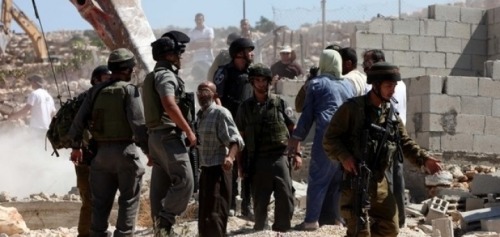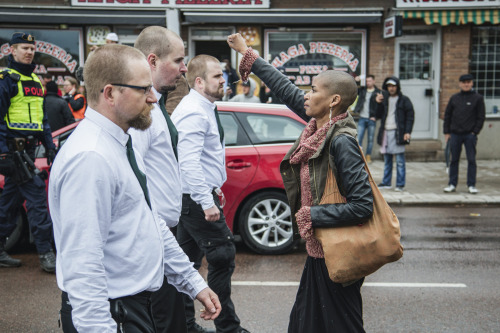#conflict
Portrait of a young checkpoint guard.
Diya, the Erez battalion commander, in the Military Police, at the checkpoint of Shuafat Refugee Camp in East Jerusalem, on December 22, 2015. Photo by Hadas Parush/Flash90
Post link
Currently Reading:
Fallen by Lauren Kate
We Are Okay by Nina LaCour
Spoiler Alert: You can’t properly heal all by yourself. You need to let someone else in to help you.
Privileged people rarely take the voices of marginalized people seriously. Social justices spaces attempt to fix this with rules about how to respond to when marginalized people tell you that you’ve done something wrong. Like most formal descriptions of social skills, the rules don’t quite match reality. This is causing some problems that I think we could fix with a more honest conversation about how to respond to criticism.
The formal social justice rules say something like this:
- You should listen to marginalized people.
- When a marginalized person calls you out, don’t argue.
- Believe them, apologize, and don’t do it again.
- When you see others doing what you were called out for doing, call them out.
Those rules are a good approximation of some things, but they don’t actually work. It is impossible to follow them literally, in part because:
- Marginalized people are not a monolith.
- Marginalized people have the same range of opinions as privileged people.
- When two marginalized people tell you logically incompatible things, it is impossible to act on both sets of instructions.
- For instance, some women believe that abortion is a human right foundational human right for women. Some women believe that abortion is murder and an attack on women and girls.
- “Listen to women” doesn’t tell you who to believe, what policy to support, or how to talk about abortion.
- For instance, some women believe that religious rules about clothing liberate women from sexual objectification, other women believe that religious rules about clothing sexually objectify women.
- “Listen to women” doesn’t tell you what to believe about modesty rules.
- Narrowing it to “listen to women of minority faiths” doesn’t help, because women disagree about this within every faith.
- When “listen to marginalized people” means “adopt a particular position”, marginalized people are treated as rhetorical props rather than real people.
- Objectifying marginalized people does not create justice.
Since the rule is literally impossible to follow, no one is actually succeeding at following it. What usually ends up happening when people try is that:
- One opinion gets lifted up as “the position of marginalized people”
- Agreeing with that opinion is called “listen to marginalized people”
- Disagreeing with that opinion is called “talking over marginalized people”
- Marginalized people who disagree with that opinion are called out by privileged people for “talking over marginalized people”.
- This results in a lot of fights over who is the true voice of the marginalized people.
- We need an approach that is more conducive to real listening and learning.
This version of the rule also leaves us open to sabotage:
- There are a lot of people who don’t want us to be able to talk to each other and build effective coalitions.
- Some of them are using the language of call-outs to undermine everyone who emerges as an effective progressive leader.
- They say that they are marginalized people, and make up lies about leaders.
- Or they say things that are technically true, but taken out of context in deliberately misleading ways.
- The rules about shutting up and listening to marginalized people make it very difficult to contradict these lies and distortions.
- (Sometimes they really are members of the marginalized groups they claim to speak for. Sometimes they’re outright lying about who they are).
- (For instance, Russian intelligence agents have used social media to pretend to be marginalized Americans and spread lies about Hillary Clinton.)
The formal rule is also easily exploited by abusive people, along these lines:
- An abusive person convinces their victim that they are the voice of marginalized people.
- The abuser uses the rules about “when people tell you that you’re being oppressive, don’t argue” to control the victim.
- Whenever the victim tries to stand up for themself, the abuser tells the victim that they’re being oppressive.
- That can be a powerfully effective way to make victims in our communities feel that they have no right to resist abuse.
- This can also prevent victims from getting support in basic ways.
- Abusers can send victims into depression spirals by convincing them that everything that brings them pleasure is oppressive and immoral.
- The abuser may also isolate the victim by telling them that it would be oppressive for them to spend time with their friends and family, try to access victim services, or call the police.
- The abuser may also separate the victim from their community and natural allies by spreading baseless rumors about their supposed oppressive behavior. (Or threatening to do so).
- When there are rules against questioning call outs, there are also implicit rules against taking the side of a victim when the abuser uses the language of calling out.
- Rules that say some people should unconditionally defer to others are always dangerous.
The rule also lacks intersectionality:
- No one experiences every form of oppression or every form of privilege.
- Call-outs often involve people who are marginalized in different ways.
- Often, both sides in the conflict have a point.
- For instance, black men have male privilege and white women have white privilege.
- If a white woman calls a black man out for sexism and he responds by calling her out for racism (or vice versa), “listened to marginalized people” isn’t a very helpful rule because they’re both marginalized.
- These conversations tend to degenerate into an argument about which form of marginalization is most significant.
- This prevents people involved from actually listening to each other.
- In conflicts like this, it’s often the case that both sides have a legitimate point. (In ways that are often not immediately obvious.)
- We need to be able to work through these conflicts without expecting simplistic rules to resolve them in advance.
This rule also tends to prevent groups centered around one form of marginalized from coming to engage with other forms of marginalization:
- For instance, in some spaces, racism and sexism are known to be issues, but ableism is not.
- (This can occur in any combination. Eg: There are also spaces that get ableism and sexism but not racism, and spaces that get economic justice and racism but not antisemitism, or any number of other things.)
- When disabled people raise the issue of ableism in any context (social justice or otherwise), they’re likely to be shouted down and told that it’s not important.
- In social justice spaces, this shouting down is often done in the name of “listening to marginalized people”.
- For instance, disabled people may be told ‘you need to listen to marginalized people and de-center your issues’, carrying the implication that ableism is less important than other forms of oppression.
- (This happens to *every* marginalized group in some context or other.)
- If we want real intersectional solidarity, we need to have space for ongoing conflicts that are not simple to resolve.
Tl;dr “Shut up and listen to marginalized people” isn’t quite the right rule, because it objectifies marginalized people, leaves us open to sabotage, enables abuse, and prevents us from working through conflicts in a substantive way. We need to do better by each other, and start listening for real.
In online disagreements, it’s easy to feel like you’re the only one making an effort to be nice. Like you’re working hard to talk respectfully, but everyone else keeps sabotaging you.

All people have to do is be a tiny bit civil. That shouldn’t be complicated, right?
The thing is, it’s pretty complicated.
Here are a few examples of how you might try to convey respect in choosing your words:
- empathizing with other people’s thoughts and feelings
- not making assumptions about people’s thoughts and feelings
- avoiding swearing & overly casual language
- avoiding pompous, academically elite language
- being straightforward & honest
- refraining from saying negative things
- carefully avoiding statements with any kind of subtle bigotry
- not walking on eggshells with someone just because you have privileges they don’t
- refraining from logical fallacies and generalizations
- refraining from nitpicking and hair-splitting
See how this can get a little… contradictory? Differences in how you prioritize these things can alienate people who grew up in the same household.
Now imagine folks from radically different social circles, religious backgrounds, and countries, all trying to correctly guess what everyone else will read as respectful. That’s the internet on a good day. We can all work hard to treat each other right, and it can still blow up in our faces.
People on both sides can take measures to de-escalate a conflict, and it can escalate anyway because they perceive the conflict differently.

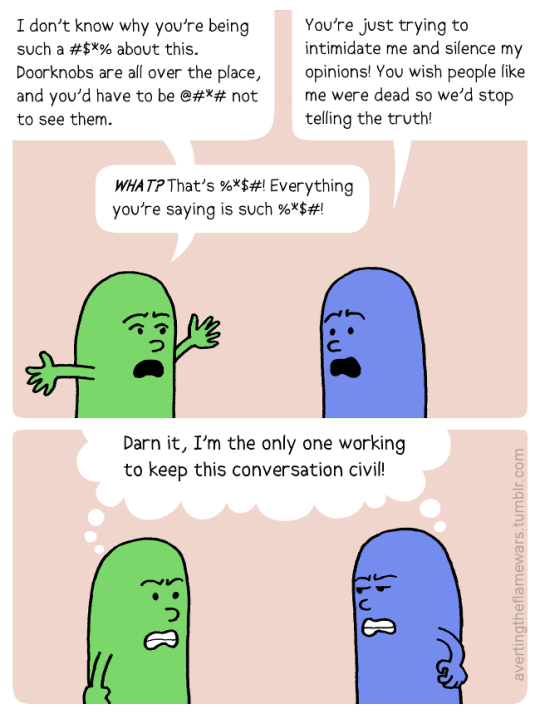
This can leave you feeling frustrated, self-righteous, and put-upon. All dry kindling in the world of flame wars.
It helps to figure out what exactly makes you feel respected. Then you can ask people to treat you the way you want, in a specific and constructive way.
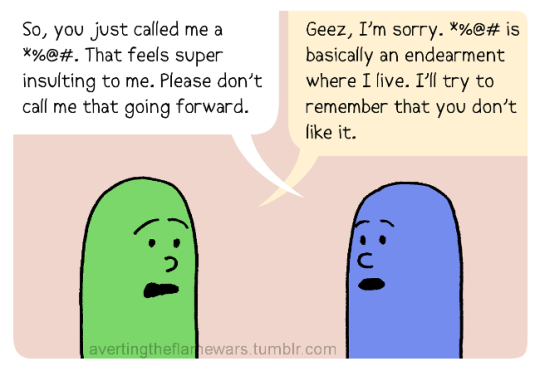
And when you can articulate how you want to be treated, it’s easier to remember that others might want to be treated differently.
Subscribers: PolGeoNow’s Syria map has been updated for the events of the past four months, with the so-called “Islamic State” (ISIS/ISIL) losing its last firmly-controlled site in the central desert. However, the group is still very much active, operating from mobile camps, and we’ve illustrated its major areas of presence with a new symbol on the map.
More info: https://www.polgeonow.com/2020/11/syria-control-map-isis-still-active.html
Post link
For our subscribers: Updated map of territorial control in the Nagorno-Karabakh conflict, where Azerbaijan has captured sizeable chunks of territory from the Armenia-backed, self-proclaimed Republic of Artsakh.
More info: https://www.polgeonow.com/2020/10/nagorno-karabakh-control-map-update.html
Post link
Photo by @amivitale. I truly believe that photography can show us that we have a lot more in common than we often realize. If we dig beneath the headlines and take the time to understand, a universal truth emerges. We are all connected to one another.
I am grateful to have had the chance to speak with @Mongabay’s @ErikHoffner about this, and so many other issues and critical ideas. Thank you for the opportunity and for sharing the @vital.impacts print sale fundraiser. Click on the link in my profile to read the full interview.
Thank you to @cansoninfinity for donating the paper for the fundraiser and to @paperandinkstudio and @theprintspace for your exquisite fine art printing.
#war #conflict #ukraine #solidarity #vitalimpacts
https://www.instagram.com/p/CcGkjEXv28K/?igshid=NGJjMDIxMWI=
Post link
I am so grateful to the @washingtonpost for their beautiful coverage of our @vital.impacts initiative for humanitarian aid. Click on the link in my profile to see the gallery, and explore some of the featured work here.
Make these @vital.impacts prints yours & help those in need of humanitarian aid. 100% of profits will be donated to @directrelief who are on the ground now in Ukraine and around the world. This is a way to support humanitarian efforts and have a unique opportunity to purchase some of the most memorable fine art prints from the world’s leading photographers.
Photos:
@franslanting: Blooming orange and red wildflower Orchids.
@iantehphotography: Children swimming and diving in the lido by the beach in St. Malo.
@amivitale: Manisha and Jasmin Singh pause in the Baoli, an ancient step well in a village near the city of Jaipur outside of India’s Thar desert.
@james_balog: Matterhorn at Dawn, Zermatt, Switzerland, 1993.
@habjouqa: Ahed Tamimi, renowned Palestinian activist, in nature a short walk from her home and in the ruins of an archeological site. She was arrested for 8 months at age sixteen.
@vincentjmusi: Cowboy Hat, Route 66, Seligman, Arizona.
@evgenia_arbugaeva: Princess of Tundra.
@sissebrimberg: Man walking along the levee on the Arno River, Florence, Italy.
@norbert_rosing_photography: Polar bear mother with twins resting, one cub enjoying to stretch between her legs, the other squeezing in behind its sibling.
Thank you to @cansoninfinity for donating the paper for this and to @paperandinkstudio and @theprintspace for your exquisite fine art printing.
#war #conflict #ukraine #solidarity #vitalimpacts
https://www.instagram.com/p/CcBRjVIv8Du/?utm_medium=tumblr
Post link
I am so grateful to the @washingtonpost for their beautiful coverage of our @vital.impacts initiative for humanitarian aid. Click on the link in my profile to see the gallery, and explore some of the featured work here.
Make these @vital.impacts prints yours & help those in need of humanitarian aid. 100% of profits will be donated to @directrelief who are on the ground now in Ukraine and around the world. This is a way to support humanitarian efforts and have a unique opportunity to purchase some of the most memorable fine art prints from the world’s leading photographers.
Photos:
@franslanting: Blooming orange and red wildflower Orchids.
@iantehphotography: Children swimming and diving in the lido by the beach in St. Malo.
@amivitale: Manisha and Jasmin Singh pause in the Baoli, an ancient step well in a village near the city of Jaipur outside of India’s Thar desert.
@james_balog: Matterhorn at Dawn, Zermatt, Switzerland, 1993.
@habjouqa: Ahed Tamimi, renowned Palestinian activist, in nature a short walk from her home and in the ruins of an archeological site. She was arrested for 8 months at age sixteen.
@vincentjmusi: Cowboy Hat, Route 66, Seligman, Arizona.
@evgenia_arbugaeva: Princess of Tundra.
@sissebrimberg: Man walking along the levee on the Arno River, Florence, Italy.
@norbert_rosing_photography: Polar bear mother with twins resting, one cub enjoying to stretch between her legs, the other squeezing in behind its sibling.
Thank you to @cansoninfinity for donating the paper for this and to @paperandinkstudio and @theprintspace for your exquisite fine art printing.
#war #conflict #ukraine #solidarity #vitalimpacts
https://www.instagram.com/p/CcBRDbUvNxD/?utm_medium=tumblr
Post link
a softer sea starters: volume iv
starter sentences based on the web comica softer sea.
lines have been adjusted for grammar, cohesion, etc.
please change the tenses, pronouns, etc. as you like!
- ❝ tomorrow will be better! ❞
- ❝ i believe you. ❞
- ❝ suffice it to say, you’re going to burn. ❞
- ❝ you’ll get what’s coming to you. ❞
- ❝ i didn’t ask to be made! ❞
- ❝ you know i love you still! ❞
- ❝ i don’t regret loving you the way i did. ❞
- ❝ i’m happier with you now! ❞
- ❝ time changes us for the better sometimes. ❞
- ❝ i’m trying to tell you the truth about myself! ❞
- ❝ i love you the way the moon loves the sea. ❞
- ❝ i love you the way the sea loves the moon. ❞
- ❝ someday things will get better. ❞
- ❝ everything will be alright. ❞
- ❝ i wanted you to love me! ❞
- ❝ i wanted this to work! ❞
- ❝ we’re the worst, my darling. ❞
- ❝ what am i supposed to thank you for, exactly? ❞
- ❝ all is lost! ❞
- ❝ i bow to no one! ❞
- ❝ it’s strange how you can miss someone you hate. ❞
- ❝ brutal honesty and tender honesty go hand in hand. ❞
- ❝ ‘fuck you’ and ‘love you’ need to carry the same weight. ❞
- ❝ you’ll find no consolations here. ❞
- ❝ you’re going to ruin everything! ❞
- ❝ all you can do is breathe and be. ❞

Here I am with the second part of October’s themed week in “Throwback Thursday”! The subject is always related to the visual band Gotcharocka, but this time we go back to their first album, Crisis, released on 17th July 2013. The album represents the band’s musical manifesto, bringing out the image of crisis as a moment where there’s a conflict of ideas and melodies, translated throughout the whole tracklist. And now… let’s review!

-Count down [lack of time]: the album starts with a short track, opened by strong guitar lines; Jui’s voice is soft, but it becomes more energetic, along with the theme, which sees a fast evolution; a good way for starting things. —> 8/10
-Yuujo (Prostitute) [pleasure has a price]: bright guitar notes open up the song, leading up to an energetic and pretty paced theme, mainly driven by the guitar; the vocals are fast and piercing, with an hint of aggressivity which shouldn’t be neglected; a catchy and quite pleasant song. —> 8.5/10
-C U [difficulty of leaving love behind]: the lead-track of the album sees Jui’s clear vocals introducing the theme, with a fast rhythm and a well fit guitar, building up a pretty romantic melody; a nice rock track, a mix of passion and energy, thanks to the distinctive guitar work. —> 8.5/10
-Poisonous Berry [love which hides something else]: the lead-song of the third single with the same name is kicked off by an high-sounding guitar, leading up to a freaking and fast rhythm; the vocals are balanced and accompained by a dynamic guitar work, where the refrain is simple and well fit into the whole thing; a good song, with a really nice guitar solo. —> 8.5/10
-Byousokuai (Love per second) [love lived second after second]: this song is opened by a decise guitar, leading up to a quite sustained rhythm; Jui’s vocals are soft, keeping up a pretty energetic and fascinating melody, bringing up a quite unusual vocal interpretation, compared to what heard previously; a quite good and bold song in its own. —> 9/10
-99bangai no je t’aime (I love you at 99th avenue) [romantic bind with a place]: traffic noise open a song featuring a relevant retrò atmosphere, where it’s literally a lighter’s click to kick off the theme, where a dynamic guitar goes swiftly in a paced rhythm, with seducing and energetic notes; the vocals are fascinating, bringing up a nice performance, for a quite unusual and romantic track. —> 9/10
-Virginity: *already reviewed by me* —> 9/10
-Hydrag [freaking with the mind]: the lead-song of the second single is opened by a strong guitar and a quite fast rhythm, where the vocals are freaking and more rapid than usual, bringing also a bit of aggressivity into the song; a quite nice rock track, with a simple and flowing structure. —> 8.5/10
-Many Merry Moments [joyful life]: this song is opened by a balanced guitar, following up a paced and dynamic rhythm; Jui’s voice is cheerful and bright, working quite well within a pleasant melody, empowered by Jun’s compelling guitar work. —> 9/10
-Qtie [money win over the feelings]: strong electronic effects open the song, featuring a quite steady rhythm; the vocals are piercing, alternated with some choir part, building a song with a quite different style than the previous ones, with a relevant electronic component, but maintaining the band’s core style. —> 8.5/10
-The Lyrical Jet Sky [absolute freedom]: this song sees a freaking rhythm, accompaining an energetic guitar, where Jui’s vocals appear more aggressive than usual, with a fast and dynamic touch making them more appealing; an interesting track, which mixes positivity and heavyness all in a single bit. —> 8.5/10
-Gotcha6ka [ambiguity of human life]: their debut song starts with absurdly effected vocals, leading up to fast and quite paced song; Jui’s vocals are mixed and irregular, along with an unexpectedly mature vibe, making this song even better than expected. —> 8.5/10
-Beautiful Life -Type A only- [beautiful but short life]: the bonus track of the album’s Type A starts with soft vocals, kicking off a theme made of light notes, with a simple and flowing rhythm; a pleasant song, driven mainly by Jui’s nice tones. —> 8.5/10
-Lily187 -Type B only- [ideal world]: the bonus of Type B is opened by rain drops, followed up by thin guitar notes and a soft rhythm, where the guitar takes over the rest within the melody; the vocals are light, almost whispered, driving up a warm ballad, which gets some energy in the second part. —> 8.5/10
Final Vote —> 8.5/10
On 2012 Gotcharocka came out with good propositions and a line-up which gave them an huge advantage within the scene. Featuring members from notable projects, like Vidoll,CharlotteandPhantasmagoria, the band went quickly into the audience’s heart, thanks to a refreshing sound and coloured outfits. The first album Crisis marked their debut in the visual kei world, bringing out energetic and cheerful themes, driven by good guitar lines, but also softer ones, with some experimentation along the road. The album results being a compact and pretty nice musical experience, showing the talent of each member and bringing on the plate an interesting variety of melodies, easy and fit for each listener. It’s impossible to not being invested into Gotcharocka’s musical world, especially after listening to this album. An album for who needs to rediscover Gotcharocka’s energetic and colorful musical world, which shouldn’t be missed.
That’s all folks! See you with a new song analysis in “Lyrical Love”!
Thanks for the reading!
READ OUR RELATED POSTS
REVIEWS
An approx. 6 year old male #Leopard who was left paralyzed after a highway accident was rescued by #WildlifeSOS & the Forest Dept. from Dhavalpuri village, Ahmednagar. Despite our best efforts, the leopard succumbed to its injuries this morning.
Read the full story by Hindustan Timeshere:http://bit.ly/2BKLK9N
Post link
Why do I get the shakes when they start yelling?
Speaking of how ‘Islamic’ the goup is:
Raqqa, January 8th, 2016. A woman, Lena Al-Qasem, was publicly executed by her own 20 year-old jihadi son, Ali Saqr al-Qasem, the charge was : “inciting her son to leave the Islamic State and escaping together to the outside of Raqqa.”
In accordance to a hadith, the Prophet Muhammad (PBUH) said: ”Your Heaven lies under the feet of your mother.”
Isisorthe Islamic State In Iraq and Syria, as the barbaric group refers to itself with all complacency, is claimed to be a Salafi jihadist militant group that follows a so-called ‘Islamic’ fundamentalist, Wahhabi doctrine of Sunni Islam, which seems to be nothing but a poor justification for their politically-motivated barbarism. ‘Islamic fundamentalism, Salafism, Wahhabism…’ none of these actually existed back in the prophet’s era, nor have been mentioned in the Islamic scripture.
Where did Isis come from?
“In Syria we backed … some of the wrong people and not in the right part of the Free Syrian Army. Some of those weapons from Benghazi ended up in the hands of ISIS. So we helped build ISIS.” says the Fox News analyst and U.S. military ex-general McInerney. (See video here.)
Writing for The Guardian in August 2014, Ali Khedery states: “Principally, Isis is the product of a genocide that continued unabated as the world stood back and watched. It is the illegitimate child born of pure hate and pure fear – the result of 200,000 murdered Syrians and of millions more displaced and divorced from their hopes and dreams. Isis’s rise is also a reminder of how Bashar al-Assad’s Machiavellian embrace of al-Qaida would come back to haunt him. Facing Assad’s army and intelligence services, Lebanon’s Hezbollah, Iraq’s Shia Islamist militias and their grand patron, Iran’s Revolutionary Guards, Syria’s initially peaceful protesters quickly became disenchanted, disillusioned and disenfranchised – and then radicalised and violently militant.”
Who is funding Isis?
“The most important source of Isis financing to date has been support coming out of the Gulf states, primarily Saudi Arabia but also Qatar, Kuwait and the United Arab Emirates” says Günter Meyer, the director of the Center for Research into the Arabic World at the University of Mainz.
Isis is now funding itself, through oil sales mostly. But when it all started out, Isis was ‘seed funded’ by wealthy donors, charities and even the governments of the Persian kingdoms, Saudi Arabia and Qatar who gave money to the opponents of Syrian President Bashar al-Assad, Isis included.
According to an estimate by IHS (an energy research consultancy) Isis-controlled territory produces up to 60,000 barrels per day, which is an estimated £1m every 24 hours.
Who is arming Isis?
According to a Conflict Armament Research Group study, the ammunation the group uses was manufactured mostly in America, China and Russia.
Back in 2014, Isis took possession of large amounts of kit including tanks, rocket launchers and howitzers. It is known to have smuggled in arms from places such Saudi Arabia, Iraq, Syria, Eastern Europe.
According to Reuters, the U.S. made weaponry that fell into enemy hands includes 2,300 Humvee armored vehicles, at least 40 M1A1 main battle tanks, 74,000 machine guns, and as many as 52 M198 howitzer mobile gun systems, plus numerous small arms and ammunition.
Israel demolishes Palestinian homes | إسرائيل تهدم منازل الفلسطيين
Israel demolishes residential buildings in occupied West Bank
جرافات الاحتلال تهدم مباني سكنية فلسطينية في مناطق مختلفة من الضفة المحتلة
On top of taking the Palestinian land back in ‘48, Israel even takes homes and land INSIDE the Palestinian Territories. Breaking UN and international laws again and again.
Post link
©David Lagerlof, May 1, 2016, Tess Asplund protesting against a Neonazi demo in Borlänge, Sweden
“Resist much, obey little.” ― Walt Whitman, Leaves of Grass
Post link












